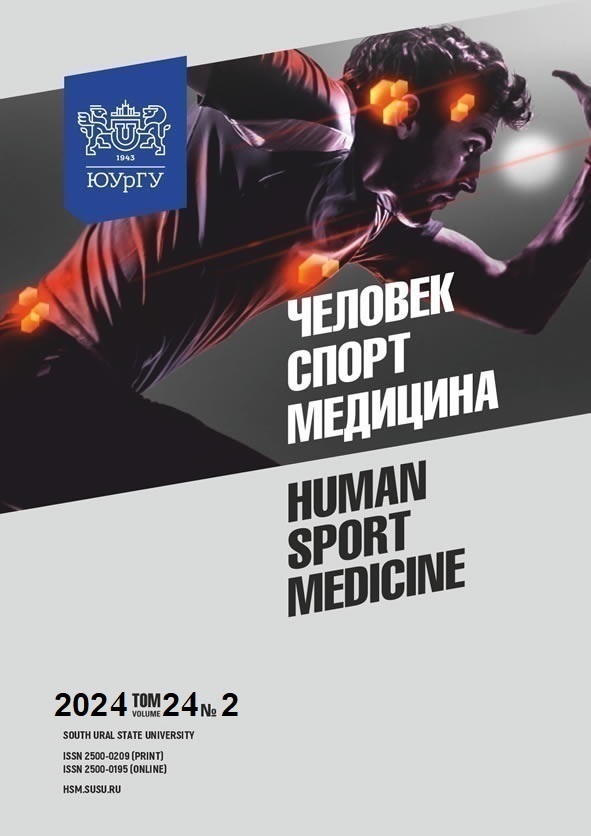EVALUATING THE IMPACT OF TRAINING MACROCYCLES ON POSTURAL STABILITY IN YOUNG CLIMBERS AGED 18–22
Abstract
Aim. The objective of this study is to assess the impact of a six-month training macrocycle on the statokinetic stability of female climbers. Materials and methods. The methodology involves a sample of ten participants. The hardware-software complex MBN “Stabilo” was used to measure statokinetic stability indicators across fourteen parameters, thereby elucidating the effects of training on postural stability. Results. The results reveal a notable increase in the displacement of the Center of Pressure (CoP) in the frontal plane during upright stance with open eyes (OE) (p < 0.01). Additionally, the study observes a reduction in the stability indicator (OE) and the index of stability (OE), alongside an enhancement in the index of dynamic balance (OE), both of which are statistically significant at p < 0.01 and p < 0.05, respectively. Conclusion. The conclusions drawn from this research indicate that a four-to-six month training cycle for female climbers leads to a lateral shift, alterations in proprioceptive awareness, and a decline in statokinetiс stability during poses with open eyes. Conversely, improvements in dynamic balance are observed. These changes are attributed to the prolonged exposure to vertical and inclined planes inherent to climbing activities.
References
References on translit
Copyright (c) 2024 Human. Sport. Medicine

This work is licensed under a Creative Commons Attribution-NonCommercial-NoDerivatives 4.0 International License.















